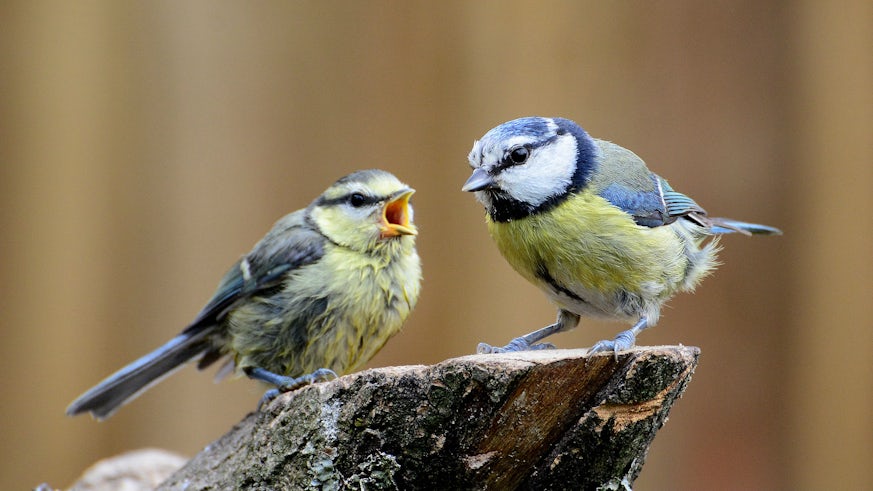Early spring is causing a mismatch of food
30 April 2018

With warmer spring weather expected, due to climate change, collaborative research finds that hatching of forest birds will be "increasingly mismatched" with peaks in caterpillar numbers.
The researchers used data collected across the UK to study spring emergence of oak tree leaves and caterpillars, and timing of nesting by three bird species: blue tits, great tits and pied flycatchers.
They also tested a theory that some bird species in southern Britain may suffer most due to a greater mismatch effect -- but they found no evidence of this.
Jeremy Smith from Cardiff University said: “Caterpillars come out in forests in abundance for a short time period, and some forest birds time their breeding to coincide with this to feed their chicks.
“Climate change is causing spring to come earlier, along with earlier emergence of leaves and caterpillars, and therefore birds need to breed earlier to avoid missing out on the adundance of food.”
Dr Malcolm Burgess, University of Exeter and the RSPB, “We found that the earlier that spring came, the less birds are able to do this.
“The biggest mismatch was among pied flycatchers -- as migratory birds, they are not in the UK in winter and therefore are much less able to respond to earlier spring weather."
The study presents the first assessment of whether the mismatch effect is greater in southern Britain than the north.
It has been suggested that northern bird populations may be "buffered" from the effects of climate change in this way.
Dr Ally Phillimore, from the University of Edinburgh, said: "We found no evidence of north-south variation in caterpillar-bird mismatch for any of the bird species. Therefore, population declines of insectivorous birds in southern Britain do not appear to be caused by greater mismatch in the south than the north."
Dr Karl Evans, from the University of Sheffield's Department of Animal and Plant Sciences, said "Our work suggests that as springs warm in the future less food is likely to be available for the chicks of insectivorous woodland birds unless evolution changes their timing of breeding."
First leafing dates of oak trees were collected by citizen scientists coordinated by the Woodland Trust via Nature's Calendar, caterpillar abundance was monitored by collecting frass (droppings) beneath oak trees, and the timing of egg laying by blue tits, great tits and pied flycatchers were recorded by the British Trust for Ornithology's long-running Nest Record Scheme.
The paper, published in the journal Nature Ecology and Evolution, is entitled: "Tritrophic phenological match-mismatch in space and time."